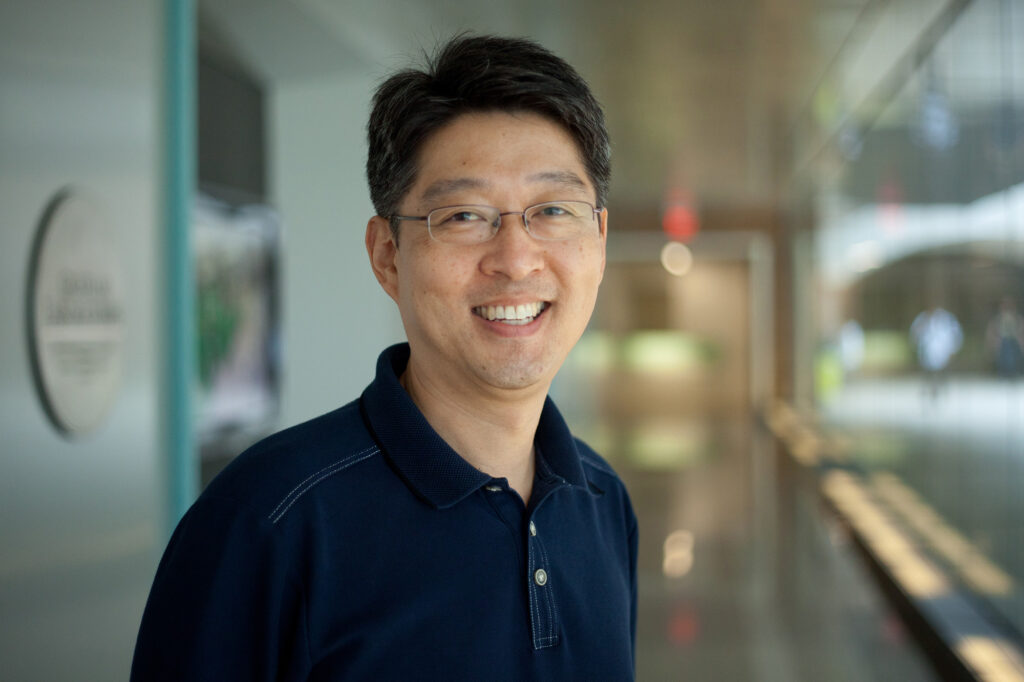Euisik Yoon receives Monroe-Brown Foundation Research Excellence Award

Prof. Euisik Yoon received a 2022-23 Monroe-Brown Foundation Research Excellence Award from the College of Engineering for his innovative and impactful research in the area of microelectromechanical systems (MEMS) and microsystems.
“Yoon’s research has paved the way for next-generation biomedical microsystems for exploring the complex structure of the brain, micro-instruments and microfluidic chips for exploring cancer tumor cells, image sensors, and more,” said colleague Khalil Najafi, Schlumberger Professor of Engineering and Arthur F. Thurnau Professor.
Yoon helped advance Michigan’s long-standing neural probe research by integrating light sources onto the probes, which opened a new path to advancing the science for precisely mapping neural circuits and understanding how the brain works. Recently, he has scaled up the number of optical stimulation sites to 128 and neural recording electrodes to 256. His probes have been successfully tested in the hippocampus of live mice to yield important insights in how memory works.
Yoon directs the NSF NeuroNex Hub called MINT, for Multimodal Integrated Neural Technologies. Thanks to this program, more than 90 labs around the world use his technology. As Director of the International Program for the Advancement of Neurotechnology (IPAN), Yoon partners with other scientists and institutions around the world to accelerate neurotechnology and education in unique ways. Through this program, more than 30 undergraduate students, half of whom are individuals underrepresented in engineering, have been introduced to this research area.
Impacting a second area of precision medicine, Yoon developed a microfluidic biochip capable of isolating and sequencing cancer cells from blood samples. This technique provides a non-invasive way to observe the progress of an individual’s cancer during treatment. He and his team then designed a machine learning program to make the system more efficient while lowering the cost. His device has been adopted by several labs at the Michigan Cancer Center.
Yoon has also made important contributions to bio-inspired imaging microsystems, RF MEMS, and polymer MEMS. For example, he demonstrated the world’s smallest low-power image sensor chip, capable of operating like insect eyes for guidance and motion control in miniaturized airborne platforms.
Yoon is a familiar presence in helping lead the most important scientific conferences in his area by serving on various technical program committees. He was also general chair of the International Symposium on Bio Micro & Nanosystems, and he served as co-chair of the International Conference for Advanced Neurotechnology that he initiated with long-time collaborator György Buzsáki, Biggs Professor of Neuroscience at New York University.
At Michigan, he has served as Director of the Lurie Nanofabrication Facility, and Director of the former Solid-State Electronics Laboratory.
In addition to his primary appointment in Electrical Engineering and Computer Science, Yoon is affiliated with the Departments of Biomedical Engineering and Mechanical Engineering at the U of M, and nanomedicine programs at Yonsei University in South Korea. He received the Ted Kennedy Family Faculty Team Excellence Award, and is an IEEE Fellow.
 MENU
MENU 
